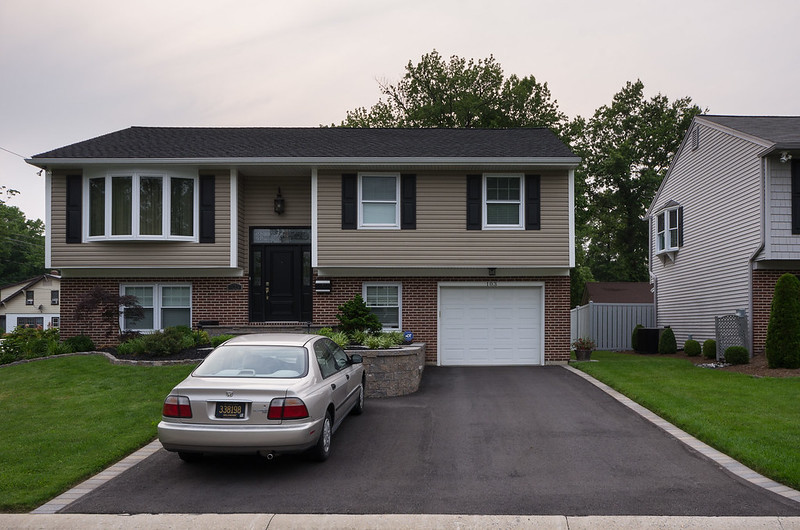What Are The Differences Between Concrete and Asphalt?
Concrete and asphalt are similar in their components, though there is one major difference between the two mixtures used to pour a new driveway. With concrete, the main adhesive is cement while asphalt uses an adhesive of tar. Both of these mixtures provide exceptionally strong and durable driveways, though concrete tends to hold up better in warm weather, and asphalt functions better in the cold. It can be difficult to determine exactly which material is best for your home without the help of a licensed professional. Below you will find 5 important factors to consider when choosing a material for your new driveway.
- Overall Cost and Investment
With any home improvement project, it’s important to first determine what budget you are comfortable working with and then looking at the different materials in that range. Materials and installation costs will vary depending on your location and the specific market in that area, though it’s common for concrete to be more expensive than asphalt. On average, most concrete installations are around $4 per square foot while asphalt is around $2 per square foot. It may be tempting to jump for the cheaper option to save money, though you should consider each factor before making a final decision. - Climate and Weather Patterns
Another important factor to consider is the climate and typical weather patterns where you live, as this can affect the curing process and overall longevity of the driveway material. While each scenario is unique, it’s common for concrete to work exceptionally well in warm climates where asphalt often becomes soft and compromised. On the other hand, asphalt is known to excel in colder climates that can cause concrete to crack and become damaged. Taking into consideration the limitations of each material and your unique climate will help to make the process of selecting a material easier to complete. - Maintenance and Upkeep
Each material will come with a unique set of recommended maintenance tips and upkeep that will need to be performed to protect and ensure the longevity of the driveway slab. Both of these materials will require preventative maintenance like sealants and coatings after a few years of use, as well as the repairs of any cracks soon after the damage occurs. It’s important to note that asphalt is simple and affordable to repair cracks on, while it can be difficult to repair concrete. In many cases, the entire driveway will need to be resurfaced to repair issues on the surface of concrete. - Longevity of the Material
One major benefit to both asphalt and concrete is the incredible longevity that each material provides. Both are known to last for decades of use and are able to be repaired, though it can be difficult to complete repairs on concrete. On average, concrete is known to last longer than asphalt with an average lifespan of around 30 to 40 years! Asphalt also lasts for decades, with an estimated longevity of around 20 to 30 years. - Design Options and Aesthetics
If you are searching for a driveway material that can be customized to match the aesthetic of your home or just to simply boost your curb appeal, it’s important to consider the design limitations of each material. Asphalt cannot really be customized, as the only variations of color are gray or black. Concrete is typically light gray but it can easily be stained with color or stamped with a design to help create a unique and elegant appearance.
DIY Projects May Pose Issues
It can be tempting to complete home renovation and upgrade projects at home, though it is not recommended for a new driveway installation. This is true especially if you already have driveway materials installed and will need to complete removal prior to pouring new concrete or asphalt. If you live in an area with extremely hot or cold temperatures, this can pose serious issues to the curing process and final product of your new driveway. Don’t hesitate to contact local companies like Utah Concrete for estimates on installation services. Choosing a professional can help to save you money on repairs over time.
Contact A Licensed Professional For Installations
Many homeowners will attempt to DIY a driveway installation, though this can often cause more problems in the long run. If you live in an area with fluctuating temperatures or are unfamiliar with installing concrete and asphalt, it’s important to reach out to a licensed and insured company for help with your new driveway. You can trust the team of experts at Utah Concrete to assist with all of your concrete and resurfacing needs. They can help you determine which material is the best for your unique home and preferences and are more than happy to provide you with a free estimate on concrete services.

